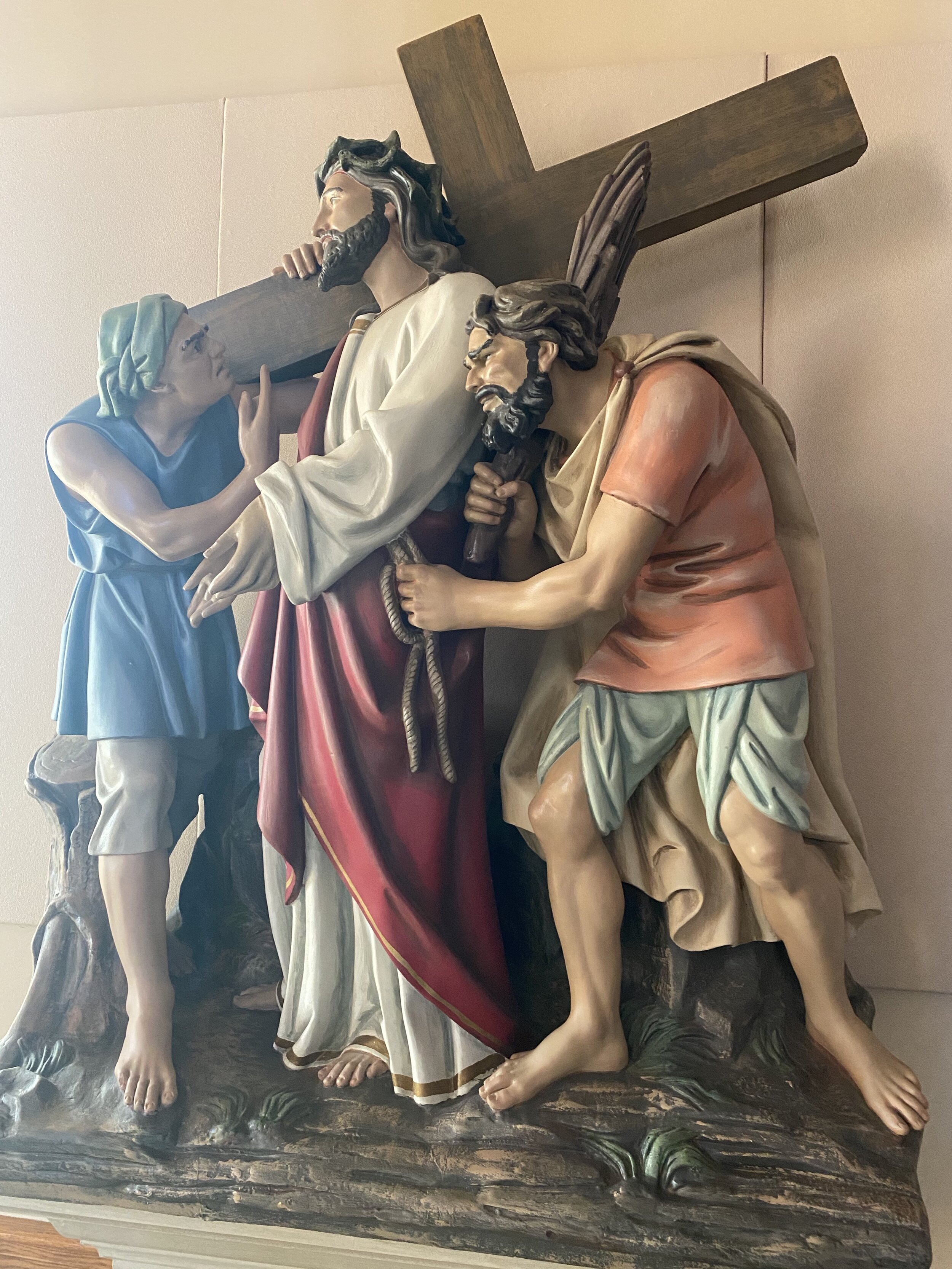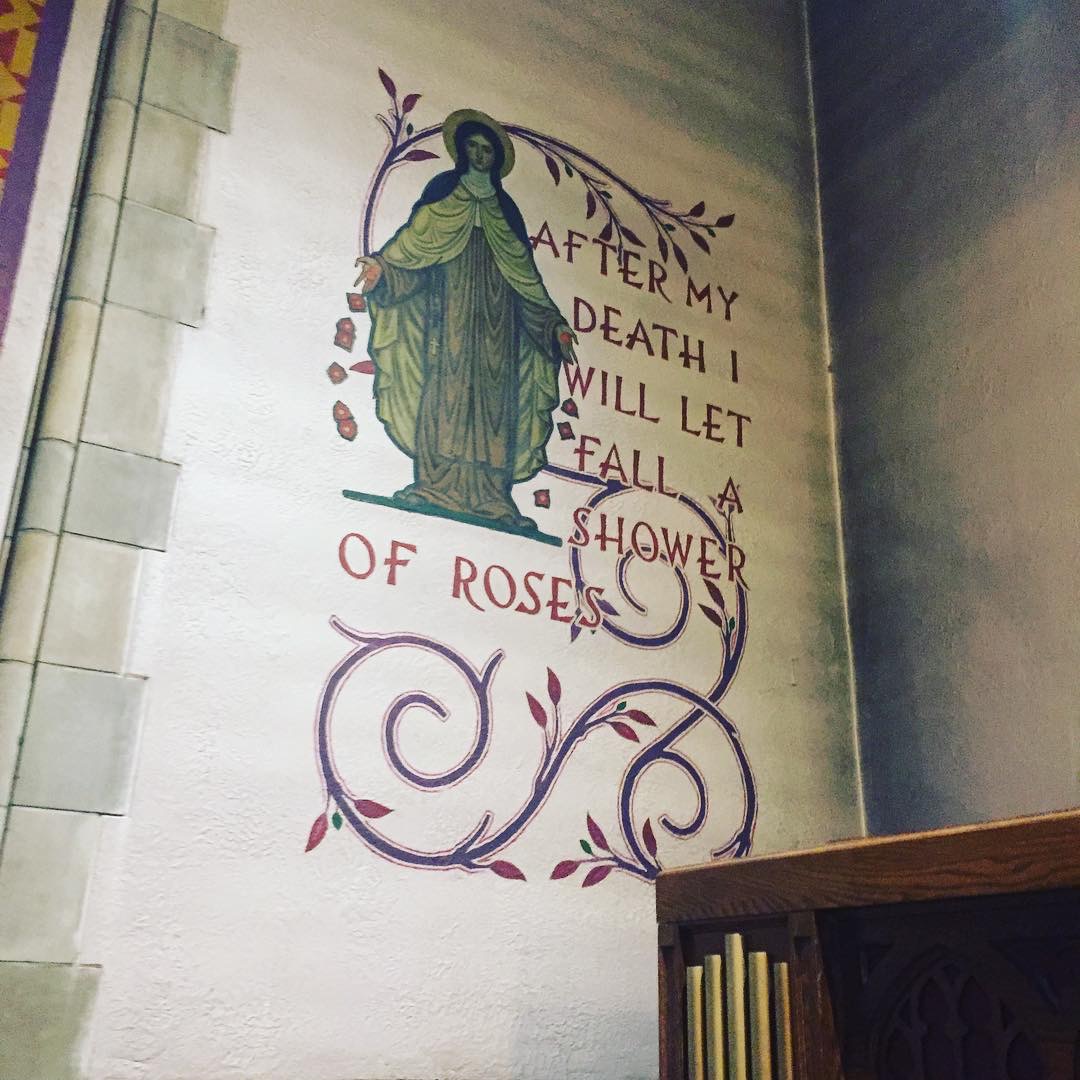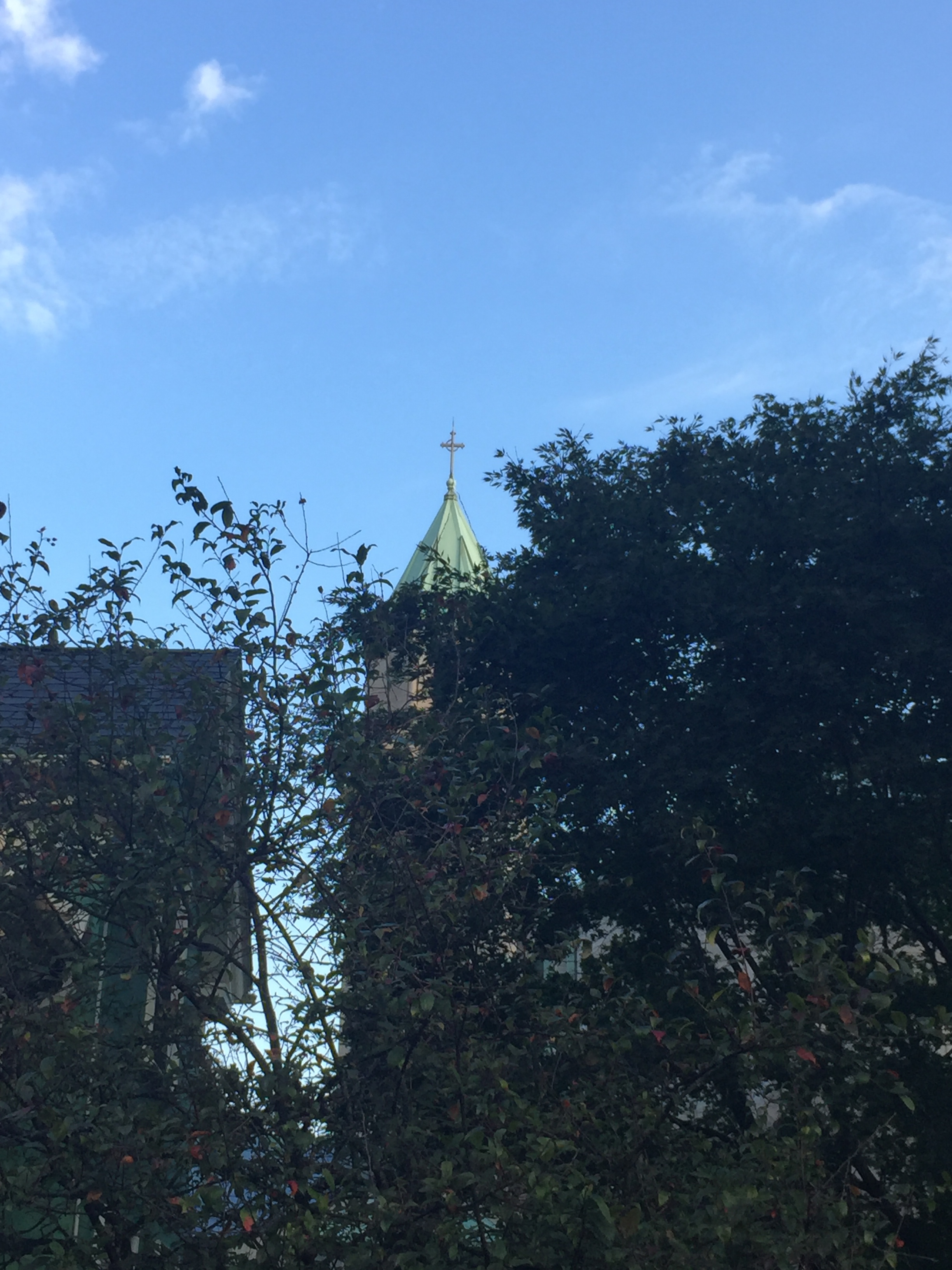The second station: Jesus Carries His Cross
A lot of dioceses are dispensing their Catholics from attending Mass; some are shutting their churches completely. It’s a strange time to be Catholic in America—what do we do without Mass?
We know that we are required to attend Mass unless we are sick, find ourselves really far from Mass, or for other big reasons (you’ve got a sick kid and you have to stay home to take care of her). Not attending Mass is a mortal sin, but, like all mortal sins, that means there are three criteria for it: Grave matter, full knowledge, and deliberate consent.
If you live in a diocese where the bishop has dispensed you from attending Mass, you’re not committing a mortal sin if you don’t go. We don’t know a lot about this virus. What we do know is that a person can have zero symptoms and be contagious! That’s scary.
Even before the dispensation came down from Ohio’s Catholic bishops, my transplant team had told me that they didn’t want me going to Mass. Was I super pleased with this idea? No. Am I listening to them? yes.
To me, this is very like life right after my transplant. I didn’t attend Mass for three months, because I was severely compromised. To go would not have been a good thing. (And also, it was an uncomfortable thing. Most Catholic churches have wooden pews. When you weigh 90 pounds, your bones really feel that wood, let me tell ya.)
I am being obedient to my doctors, and not going. My health is important and I know they want what is best for us.
I’ve seen some people talking about how our physical health isn’t more important than our spiritual health. This is true—but, that doesn’t mean that we should be reckless. There are saints who were told not to do so many penances, that they were being too hard on their bodies. It’s a balance.
I am NOT suggesting that we skip Mass just for the fun of it. I am saying that at this time it’s important to think about other people at Mass. (And really, all the time…)
People like me aren’t going. But that doesn’t mean that there won’t be people at Mass who take care of immunocompromised people, or work with them. If they get sick, that’s a big problem. So let’s remember basic good practices.
If you’re sick, don’t shake hands at the sign of peace! Use hand sanitizer. Cover your cough. Leave some space between yourself and other parishioners, so you don’t run the risk of getting them sick. If you have the flu, stay home!
The criteria I use to determine how sick I am is thus: If I would miss work, then it’s fine for me to stay home. If someone said, let’s go to Chuy’s, and I wouldn’t go because I feel awful, then I’m sick enough to not go to Mass.
I can see why some bishops are closing churches—because people aren’t doing what is right and prudent. They’re going to Mass and spreading germs everywhere, in flu season, all the time. This is not cool, folks. Use the best practices I outlined above all the time, not just now!
Also, Masses still happen with out a congregation. Carthusian monks, for example, say Mass everyday without a congregation. I imagine that priests will still say Mass, even if the church is empty.
So, what can you do if your dioceses has shut your churches, or if you are staying home from Mass?
We can make a spiritual communion. This is important!
We can read the Mass readings (Magnificat is offering its app for free right now—daily Mass readings and devotional readings every day!)
We can pray the rosary, or parts of the Liturgy of the Hours.
We can perform spiritual reading.
In this time, you might want to check on your neighbors who are sick or older, and see if you can do anything for them to help them out. Maybe you could pick up their groceries for them or something, or put gas in their car.
Just because we can’t get to Mass doesn’t mean that we can’t still practice our faith. Yes, the Mass is the source and summit of our lives. Yes, it’s vital.
But sometimes life intervenes and we can’t worship the way we’d like to. I’ve experienced that a lot in my life.
St. Teresa of Avila once received instructions from God to build her convent somewhere. Her bishop then told her to build her convent somewhere else. Teresa obeyed the bishop, because she knew she owed obedience to him. She said later, when God asked her about this, that she knew her bishop was telling her what to do and she owed him obedience; she might have imagined what God told her to do. (This story was in the book Be Holy. I’m paraphrasing here.)
Keep calm, guys, and carry on—and PRAY. Don’t rage against your bishop and take offense. Pray. If you can go to Mass, weigh if it’s prudent for you and your family. If you go, act responsibly—don’t crowd pews, cover your cough, don’t shake hands at the sign of peace, etc.
The important thing is to pray, even if you can’t get to Mass.

























